For Enquiry Dial 9035037886
Full Stack Python Certification
Training With Placement
- Globally Recognized Certificate
- Real Time Live Training sessions
- Corporate Trainers with 10+ Years Industry Experience
- Hands On Exposure on Real Time Projects
- Resume and Interview Preparation
- Get 100% Guaranteed Job Support
- Join for Internship Programs and get exposure to work on Industry Projects
- 3 Months Job support after completion of training
- Both Online and Offline trainings available
Who Can Do This Course ?
- Python and Django Full Stack Web Developer Bootcamp is for developers who work with both the front and back end of a website and application
- No Prerequisite for Python Full Stack Training
- The course is strategically designed to suffice the requirement of current industry requirements
- Freshers will find the course easy to understand as every inch of basic knowledge is covered in it
- Experience people who are willing to learn new technologies will find the course very interesting as all topics are elaborated with live examples and real time assignments
Training Methodology

Python Full Stack Course Syllabus
Best-in-industry, strategically designed Course Content, Projects, Class Sessions to
accomplish the changing requirement of market
Python Introduction
- What is Python
- Why Python
- Who Uses Python & Where we can use Python
- Characteristics of Python
- Unique features of Python
- Limitations of Python
- Python Applications
- Different versions of Python
Python Installation
- Python Installation
- PyCharm IDE
- How to Work on PyCharm
- PyCharm Components
- Write and Run python code on PyCharm
Language Fundamentals
- Python Variable/Identifiers
- Variable, Variable names and Value
- What is Indentation
- Python Reserved Words
- Introduction to Python Data Types
- Data Types – int
- Data Types – float
- Data Types – complex
- Data Types – bool
- Data Types – str
- Type Casting – int(), float(), bool(), complex(), str() functions
Python Operators
- Introduction to Python Operators
- Python Arithmetic Operators
- Python Relational Operators
- Python Equality Operators
- Python Logical Operators
- Python Assignment Operator
- Python Ternary Operator
- Operator Precedence
Input and Output Statements
- Read input data from keyboard
- How to Read Multiple Values from the keyboard
- What is eval() function
- Command Line Arguments
- Printing to the Screen
- Format printing text
Python Flow Control
- Introduction and Indentation
- “if condition” in conditional structures
- if statement (One-Way Decisions)
- if .. else statement (Two-way Decisions)
- if .. elif .. else statement (Multi-way)
- How to use “for loop”
- How to use “While Loop”
- Transfer Statements – break statement
- Transfer Statements – continue statement
- pass statement
- del statement
Python Strings
- Defining a string
- Accessing Values in Strings
- Various String Operators
- Indexing and Slicing with Strings
- Comparison & Mathematical Operators
- String methods
Python Data Structure: List
- Introduction to List data structure
- Lists are mutable
- List Properties
- Creation a List Object
- Accessing Elements of List By using index and Slice operator
- Traversing Elements of the List
- Important Methods and Functions of List
- Ordering Elements of List
- Nested Lists
- List Comprehension
Python Data Structure: Tuple
- Introduction to Tuple data structure
- Advantages of Tuple over List
- Tuple Properties
- Single Valued Tuple
- Creation of Tuple Object
- Accessing Elements of Tuple By using index and Slice operator
- Packing and Unpacking
- Important Methods and Functions for Tuple
- Reversing and Sorting Elements of Tuple
- Differences between List and Tuple
Python Data Structure: Set
- Introduction to Set data structure
- Set Properties
- Creation of Set Object
- Important Methods and Functions for Set
Python Data Structure: Dictionary
- Introduction to Dictionary data structure
- Dictionary Properties
- Creation of Dictionary Object
- How to access, add, update and delete data from dictionary
- Important Methods and Functions for dictionary
Python Functions
- What is a function?
- What is the need of Functions and its advantages?
- Types of Functions
- How to define and call a function in Python
- Return Statement
- How to return multiple values from a function
- Types of Arguments: Positional Arguments
- Types of Arguments: Keyword Arguments
- Types of Arguments: Default Arguments
- Types of Arguments: Variable Length Arguments
- Types of Variables: Global and Local
- Anonymous Functions/Lambda Functions
- filter() function
- map() Function
- reduce() Function
Advanced Python- Modules
- What is a Module?
- Types of Modules
- How to write and use Module and Its Advantages
- The import Statement
- The from…import Statement
- ..import * Statement
- Underscores in Python
- The dir( ) Function
- Creating User defined Modules
- Command line Arguments
- Python Module Search Path
Advanced Python- Packages
- What is a Package?
- Introduction to Packages?
- py file
- Importing module from a package
- Creating a Package
- Creating Sub Package
- Importing from Sub-Packages
- Popular Python Packages
Python Object Oriented Programming (OOPS)
- Introduction to OOPs Programming
- How to define a class?
- self variable
- Python Constructors
- Method vs Constructor
- Types of Variables – Instance, Static and Local
- Types of Methods – Instance, Class and Static
- Instance Methods Introduction
- Setter and Getter Methods
- Class Methods Introduction
- Static Methods Introduction
- Instance Method vs Class Method vs Static Method
- Accessing Members of one class inside another class
- Inner classes Introduction
- Nesting of Inner Classes
- Nested Methods
- Garbage Collection Introduction
- How to enable and disable Garbage Collector
- Destructor Introduction
- Inheritance Introduction
- Polymorphism Introduction
- Abstract Method and Abstract Class
- Interfaces In Python
- Interface vs Abstract Class vs Concrete Class
- Public Members
- Private Members
- Protected Members
- Data Hiding
- Abstraction
- Encapsulation
Python Exception Handling
- Python Errors (Syntax Error vs Runtime Error)
- Common RunTime Errors in PYTHON
- Abnormal termination
- Try … Except
- Try .. Except .. else
- Chain of importance Of Exception
- Exception Handling
- Try … finally
- Argument of an Exception
- Python Custom Exceptions
- Ignore Errors
- Assertions
- UsingAssertionsEffectively
Introduction to Django
- What Is a Web Framework?
- The MVC & MVT Design Pattern
- Django’s History
Installation of Django
- Installing Django
- Setting Up a Database
- Starting a Project.
- The Development Server
- Django Commands Overview
The Basics of Dynamic Web Pages
- Your First View: Dynamic Content
- Mapping URLs to Views
- How Django Processes a Request
- URL configurations and Loose Coupling
- 404 Errors
- Your Second View: Dynamic URLs
- A Word About Pretty URLs
- Wildcard URL patterns
- Django’s Pretty Error Pages
Django Templates
- Template System Basics
- Using the Template System
- Creating Template Objects
- Rendering a Template
- Multiple Contexts, Same Template
- Context Variable Lookup
- Playing with Context Objects
- Basic Template Tags and Filters Tags
- Using Templates in Views
- Template Loading
- render_to_response()
- The locals() Trick
- Subdirectories in get_template()
- The include Template Tag.
- Template Inheritance
Interacting with a Database: Models
- The MTV Development Pattern
- Configuring the Database
- Your First App
- Defining Models in Python
- Your First Model
- Installing the Model
- Basic Data Access
- Adding Model String Representations
- Inserting and Updating Data
- Selecting Objects
- Filtering Data
- Retrieving Single Objects
- Ordering Data
- Chaining Lookups
- Slicing Data
- Deleting Objects
- Making Changes to a Database Schema
- Adding Fields
- Removing Fields
- Removing Models
The Django Administration Site
- Activating the Admin Interface
- Using the Admin Interface
- Users, Groups and Permissions
- Customizing the Admin Interface
- Customizing the Admin Interface’s Look and Feel
- Customizing the Admin Index Page
- When and Why to Use the Admin Interface
Form Processing
- Adding Form
- Adding Base Template To Form
- Implementing The Edit Functionality
- Implementing Delete Functionality
- What is REST API
- Why REST API
- Why Django REST Framework?
- Set up Django REST Framework
- Creating REST API in Django
Apache Kafka is an open source stream processing software platform which was developed by the Apache software foundation. It can handle real time data projects which are unified and has low latency platform.
- Introduction to Messaging System
- Components of Messaging System
- Why we need Messaging System
- What is Kafka
- Kafka components in detail
- Producer
- Consumer
- Broker
- Cluster
- Topic
- Partitions
- Offset
- Consumer Groups
- Message Retention in Kafka
- Kafka Commit log
- Kafka Starting Zookeeper
- Starting Kafka Server
- Topic Operations: create, list, delete, describe
- Publishing data to a topic using console producer
- Publishing data to a topic using console consumer
- Sending and Recieving Messages
- Case Studies
- Kafka Installation
- Create Consumer, Producer, Topic in Kafka
To Enquire for Placement Related Queries
CALL 9035037886
Learn At Home With Ascent Software
We provide same level of guidance in Online Training as in Classroom Training. You can enquire anytime to get complete details about the courses. Our career counsellors are well trained in industry required technologies and placements.
#We are rated as "Best Online-Training Provider"
Full Stack Development Modules Covered




Meet Our Industry Expert Full Stack Developer Trainer
# Certified Trainers
# 10+ Years of Industry Experience
# Study Materials Designed On Real Time Problems
# Excellent Communication
# Expert Interview Panel
# Corporate Trainings
# 10+ Years of Industry Experience
# Study Materials Designed On Real Time Problems
# Excellent Communication
# Expert Interview Panel
# Corporate Trainings

Call us: 080-4219-1321 hours: 8am-9pm
- course Duration
The focus is on In-Depth Practical Knowledge with a division of 30% Theory and 70% Practical sessions. Weekdays and weekend batches are available.
- Certified Trainers
We have best working professionals who are certified and have current industry knowledge to cater the needs of students.
- Placements
The program is focused to make a candidate get aware of industry requirement. Classes are followed with interview questions with are very important to crack an interview.
- Course Benefits
Covering up the course a person can easily crack an interview and can work on any real time projects as focus is more on practical training. An Industry Recognised Course Completion Certificate is a part of program.
- Course Highligts
Each topic is covered In-depth with Theory and Practical sessions. Training sessions are covered using Presentations followed by Assignments to enhance the knowledge of students.
- Internship programs
We have separate Internship Programs for Final Year students and Trainee Professionals which includes projects under Certified Trainer guidance . It also includes Internship Completion Certificate.

Internship Programs
- 6 Months Internship for Final - Year Students
- 3 Months Internship for First, Second and Third year students
- 6 Months Internship for BE, B.Tech, BSC and other students
- Internship for Working Professionals
- Internship Program to get hands on experience
- Internship Programe Certificate Issued
Our Hiring Partners For Placements
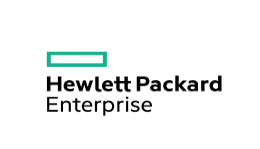

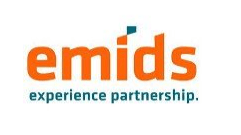


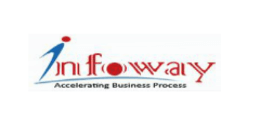
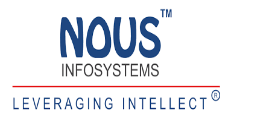


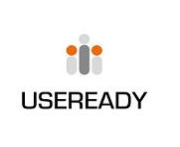
Full Stack Python Training Batch Schedule
Mon-Fri | 8 AM to 10 AM | 12 AM to 2 PM
Sat- Sun | 8 AM to 10 AM | 12 AM to 2 PM
Mon-Fri | 6 PM to 8 PM | 7 PM to 9 PM
Need Different Timings ?
Enquire for Other Batch Timings
CALL : 9620983072 | 9035037886
Still Hunting For Job?
Become Certified Python Full Stack Web Developer
And Get Job with our Placement
Assistance Support
To Enquire for Placement Related Queries
CALL 9035037886
Power BI | UI Developer | Angular | Java | Data Science | React JS | Hadoop | Selenium Testing | Security Testing | Digital Marketing | Machine Learning | Microsoft SQL Server | Python| C | C++ | HTML, CSS |…View All Courses
FAQ
Most frequent questions and answers
Ascent Software provides all necessary modes of training
- Classroom Training
- Live Instructor LED Online Training
- One to One training
- Fast Track Training
- Customized Training
- Corporate Training
No worries. We at Ascent Software assures that a student should get full advantage of every session and if a class is missed that there is always a provision of backup class. We have different batches for the same course so the student is free to attend the same topic in any other batch within the stimulated course duration. If a student is unable to undersatnd certain topic then also the same process can be done.
A student can book a slot for free demo class as per his convenient timing. We have both classroom and online demo classes.
After completion of course a student will recieve globally recognized Ascent Software Training Institute Course Completion Certificate.
We accept all kinds of payment options. Cash, Card, NetBanking, Paytm, Google Pay, PhonePe etc.
You can call on 080-42191321 / 9620983072 or you can enquire at hr@ascentcourses.com
Working hours
Monday - Saturday : 8:00-19:30 Hrs
(Phone until 20:30 Hrs)
Sunday - 8:00 -14:00
We are here
100 FT Ring Road, BTM 1st Stage, Bangalore-29
Phone: 080-42191321
Mob : 9035037886 | 9620983072
Email: hr@ascentcourses.com

